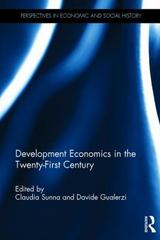Question
Answer the question below and provide references. You can also answer the questions with the notes from the instructor, but please point out the source.
Answer the question below and provide references. You can also answer the questions with the notes from the instructor, but please point out the source.
2"If trading pollution rights allow firms to lower the cost of meeting pollution standards, should not the government be able to tighten standards without firms increasing costs." Do you agree or disagree? Why? 4If pollution rights are traded, should the government impose a price ceiling on them? Would such a system contribute to the efficient allocation of resources? If you were a producer, which method of pollution control would you favor, the setting of government standards or the auction of pollution rights by the government? Why?
8How can greater capital mobility across national boundaries affect governments' tax policies? Why must businesses pay attention to the tax rates in different countries?
9How might greater capital mobility affect countries' environmental policies? Will businesses necessarily be pleased with the consequences of capital mobility on countries' environmental policies?
Instructor Notes for Chapter 6
Completion requirements
Done
The key takeaways from Chapter 6 are the following:
1Trade can be mutually beneficial so long as the traders specialize in the production of the good(s) in which they have a comparative advantage. That is to say, even a trader who is less productive than everyone else in everything can find trade beneficial.
2Generally speaking, tariffs and quotas reduce the aggregate real incomes of the countries that impose them, as well as countries that are subject to them, because they deny mutually beneficial trades.
3Those industries protected by tariffs and quotas can gain from them, but only at the expense of consumers who must pay higher prices for the protected goods and at the expense of exporters who are not able to export as much as they would without the trade protections.
4A market economy will overproduce goods and services that impose external costs on society. It will underproduce goods and services that confer external benefits.
5Sometimes, but not always, government intervention can be justified to correct for externalities. To be worthwhile, the benefits of action must outweigh the costs.
6Some ways of dealing with external costs and benefits are more efficient than others.
7Some critics of markets suggest that markets are bound to fail because of the gains to business from being dishonest, which implies a form of "externality." Nevertheless, markets have built-in incentives for people to be more honest than they might otherwise be.
8"Obvious answers" to puzzles can be wrong answers, as was (likely) the case in our discussion of the relative pollution caused by walking and driving a mile to work. Alternative courses of travel need to be carefully weighed, with due attention to non-obvious ways pollution can be generated.
9The growth in capital mobility on a global scale has provided businesses with cost-saving opportunities, but it has also tightened competitive constraints on businesses. Capital mobility has also imposed competitive constraints on governments as they seek to determine their tax and regulatory policies.
Chapter 6 Key Terms
Market failureAmarket failureoccurs when maximum efficiency is not achieved by trades (which means that part of the excess benefits shown by the shaded area inFigure 6.1are not realized by either buyers or sellers).
Externalitiesare the positive or negative effects that exchanges may have on people who are not in the market. They are sometimes called third-party effects.
Step by Step Solution
There are 3 Steps involved in it
Step: 1

Get Instant Access to Expert-Tailored Solutions
See step-by-step solutions with expert insights and AI powered tools for academic success
Step: 2

Step: 3

Ace Your Homework with AI
Get the answers you need in no time with our AI-driven, step-by-step assistance
Get Started


